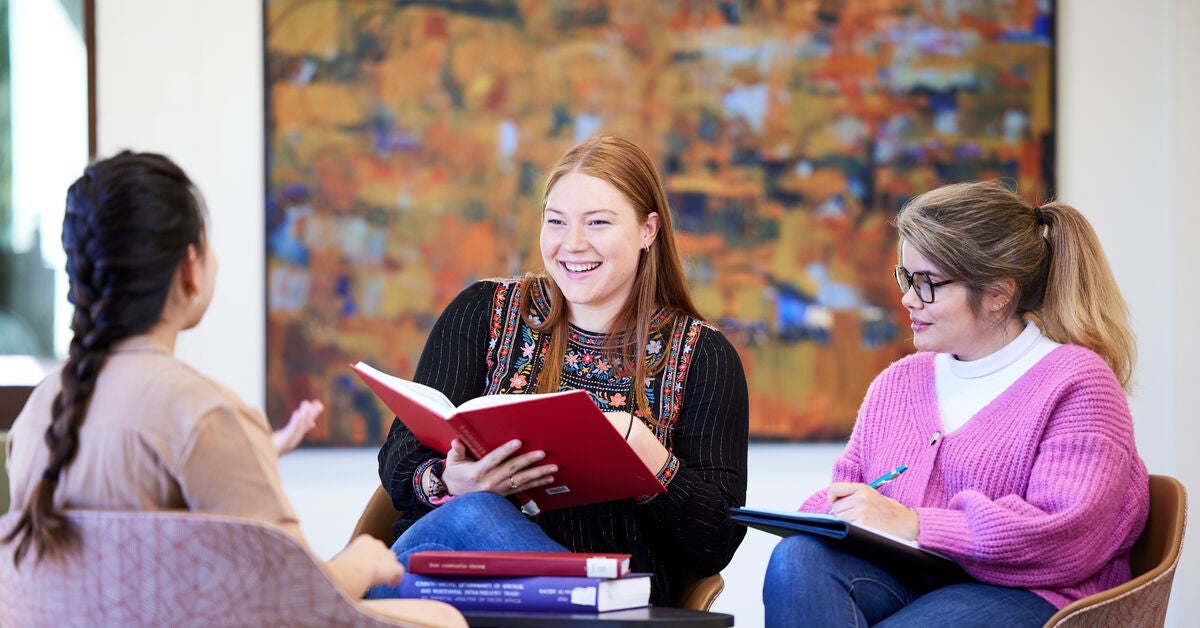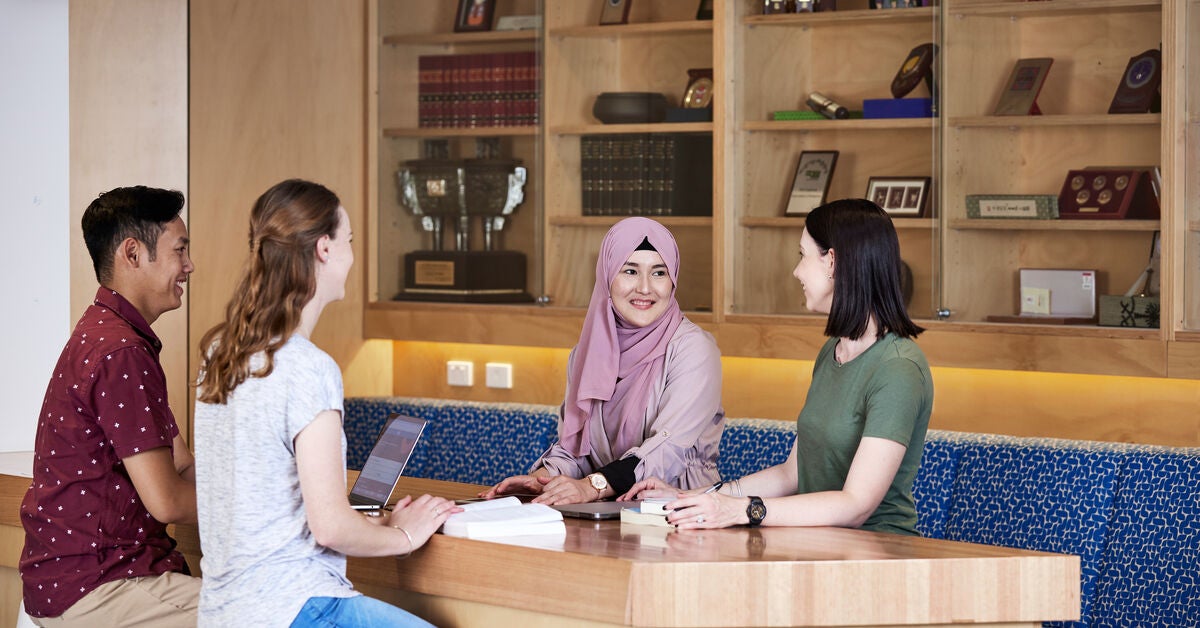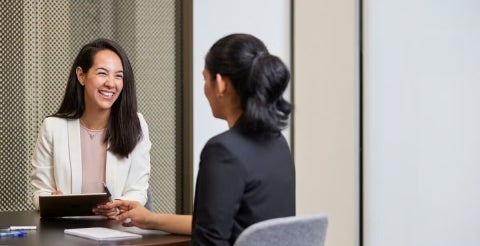What are core counselling skills?

Counselling is widely known as a rewarding and well-respected career choice. If you’re thinking about pursuing a career in this field, it’s essential you start by familiarising yourself with the basic skills and qualities of a counsellor.
One of the biggest myths about counselling is that it’s only about giving people advice and telling them what to do. In actual fact, the most important part of a counsellor’s job description is to listen to people and help them discover their own coping strategies and solutions.
Different counselling specialisations will need different expertise and skills. Milli Blenkin, Head of Discipline, Counselling, at the University of Canberra (UC), says ‘Every human being is different, so counsellors need different skills and ideas at their fingertips to help them.’
But despite this need for specialised skills, it is important to understand what are core counselling skills that every counsellor should have, before starting your counselling journey. This way, you can decide whether being a counsellor is the right career choice for you.
The makings of a good counsellor
Most people consider a career in counselling because they want to help others. Of course, counsellors need to be kind, caring, non-judgemental and, above all, genuinely interested in supporting others to achieve their goals.
But being a good counsellor takes more than just being a good person; it requires you to actively develop counselling skills. Here are our picks for the top 10 basic counselling skills to help you on your journey.
1. Empathy
Seeing a situation from someone else's viewpoint isn’t always easy. Empathy means understanding what someone’s going through and how the experience makes them feel. It’s like walking a mile in someone else's shoes. Counsellors use empathic communication skills to help build trust and confidence with their clients.
2. Active listening
There’s more to listening than just paying attention to someone’s words. Active listening in counselling involves completely engaging with the other person, being aware of the client’s non-verbal communication and reactions, and reflecting back to the client what you think is happening for them.
3. Working with emotions
For many people, finding the right words to match the emotions in their heads can be hard, yet the heart of helping clients is to support them as they untangle their feelings and make meaning of their situation.
Counsellors are trained to develop a deep emotional literacy and use their active listening skills to connect clients’ thoughts and feelings. This then widens the client’s view of their issue and leads to better tailored strategies when developing solutions to their issues.
4. Identifying creative solutions
It’s the counsellor’s role to support the client to tailor the most appropriate solutions for their issues. As every client is different, so will the solution be, and as Ms Blenkin mentions, counsellors need an array of skills and ideas to help the clients achieve this. This can often require some creative thinking. For example, keeping records of target behaviours is very important when the goal is behaviour change, but not everybody is good at keeping a diary. So you might develop a way for your client to do this by using a Situation, Task, Action, Result (STAR) chart.

5. Learning to work with different types of clients
Counsellors learn to work with different types of clients and use different interventions. For example, a small child who has experienced trauma may not be able to explain their feeling in words (this can also be a challenge for many traumatised adults). So a face-to-face chat isn’t always the most effective way to support clients who are children. Instead, you may encourage them to draw or use puppets and toys as a way to communicate their emotions.
6. Knowing when to stay quiet
Talking is good, but silence can be golden when you use it the right way. It can enable your client to take control of a conversation, speak up, or steer a topic in a particular direction. Alternatively, it can simply allow them the space to reflect on what they’ve said and begin to process it all.
7. Asking the right questions
While it’s important to make sure your client has given you all the information you need so that you can help them, asking the wrong questions or asking questions in the wrong way can be detrimental to your counselling relationship. A common mistake that some beginner counsellors make is asking their client why they acted in a certain way. This can lead the client to feel judged and the need to justify their action.
8. Continuous learning
Even a well-trained counsellor doesn’t have all the answers, and it’s okay not to know everything. Great counsellors will keep updating their knowledge and skills as much as they can by attending approved professional development courses. The Australian Counselling Association (ACA) provides a professional development register, which advertises approved courses. To be registered with the Australian Counselling Association (ACA), a counsellor needs to both:
- complete an accredited course, such as UC’s online Master of Counselling
- meet ongoing professional development standards.
Ms Blenkin says, ‘You never stop learning. There's always something new. You can always be better.’
9. Working within rules and regulations
While there are no legal regulations involved in becoming a counsellor in Australia, following a code of ethics is vital when operating a highly regarded counselling practice. An ethical counsellor will register with a professional body, such as the ACA, and hold themself accountable under its professional guidelines.
10. Self-care
Working as a counsellor is demanding on your mental and physical health. But helping others shouldn’t mean adopting problems as your own. This means seeking regular clinical supervision with a more experienced counsellor is necessary for your own and your client’s wellbeing. Supervisors provide a space for you to access advice on your work and support for your well being.
Ms Blenkin adds, ‘If helping others means you deplete all your resources so you can't actually have a life, then you're not helping anyone - least of all yourself’.

Basic counselling skills will help you think outside the box
A therapist’s couch isn’t the only place where core counselling skills can be useful. ‘They’re fantastic skills to have for whatever your position is,’ Ms Blenkin says, adding that everyone should learn basic counselling skills.
So whether you want to be a counsellor, a counselling skills development course can support you through many common workplace challenges. Some examples include:
- Managers: empathetic communication can help you have difficult conversations with your employees.
- Salespeople: active listening skills can help you quickly identify your customer's needs, encouraging their loyalty and support.
- Journalists: skilled questioning and silence can help you establish trust with an interviewee and encourage them to share more information with you.
- Teachers: counselling skills can help you build relationships and interact positively with students and parents.
Discover the many prominent career options available with a counselling degree.
And as core counselling skills focus on improving communication and strengthening relationships, they can help you deepen your personal relationships in your life too.
Interpersonal skills in counselling - what you need to know
While the desire to help people is a prerequisite to becoming a good counsellor, different clients connect best with different types of counsellors: the characteristics that make you a great counsellor for one client may keep you from connecting with another.
So investing in the right training is essential.
It will not only help you to further your career, the right course will also improve your counselling skills and keep you up to date with the latest research, such as anxiety in the time of COVID.
UC’s online Master of Counselling provides respectful support to counsellors that reflects Australia’s cultural diversity.
If you’re wondering how to improve your counselling skills, a professional qualification like this flexible course is a great start. It’s ACA-accredited, in line with their Professional Training Standards, and you’re assured of the highest-quality content delivered by industry experts.

Have you got what it takes to be a great counsellor?
Discover the rewarding career opportunities available with a Master of Counselling and start helping others today.
To learn more today:
- book a call with a Student Enrolment Adviser at a time that suits you
- phone 1300 471 770, or
- email us at future-student@studyonline.canberra.edu.au.



